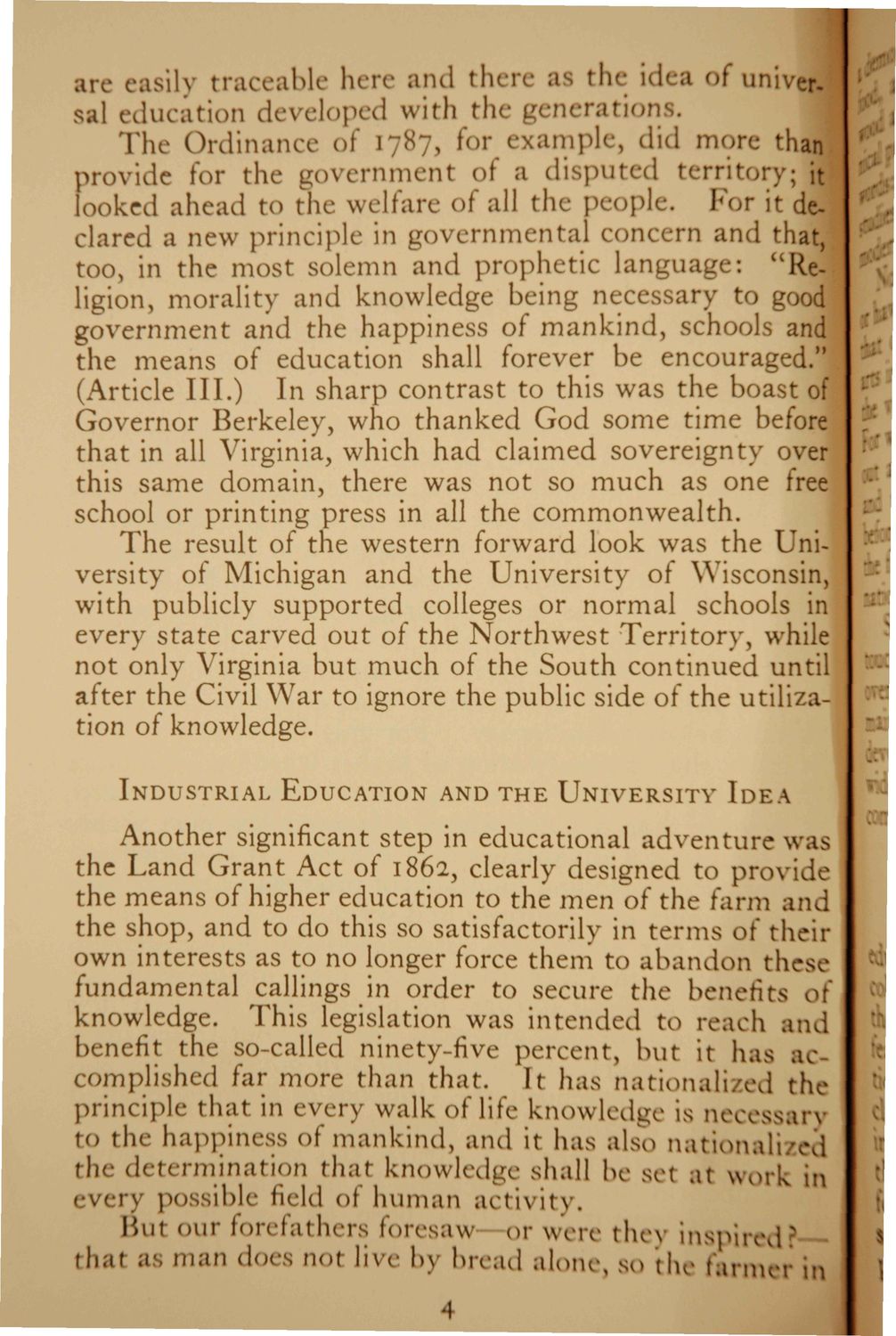| |
| |
Caption: Commencement - 1922
This is a reduced-resolution page image for fast online browsing.

EXTRACTED TEXT FROM PAGE:
ire easily tract ihle here and there as th idea of univer sal ( lu< ition developed with the generations. The Ordinance of [787, for ample, did n re than provide for the government of a di putcd tcrritor ; it ked ahead to the welfare of declared a new principle in governmental concern and that, too, in the most solemn and prophetic language: "Religion, morality and knowledge being necessary to good government and the happiness of mankind, schools and the means of education shall forever be encouraged." (Article III.) In sharp contrast to this was the boast of Governor Berkeley, who thanked God some time before that in all Virginia, which had claimed sovereignty over this same domain, there was not so much as one tree school or printing press in all the commonwealth. The result of the western forward look was the University of Michigan and the University of Wisconsin, with publicly supported colleges or normal schools in every state carved out of the Northwest Territory, while not only Virginia but much of the South continued until after the Civil War to ignore the public side of the utilization of knowledge. INDUSTRIAL EDUCATION AND THE U N I V E R S I T Y IDEA Another significant step in educational adventure v is the Land Grant Act of 1862, clearly designed to pi >vide the means of higher education to the men of the farm and the shop, and to do this so satisfactorily in terms of the: own interests as to no longer force them to abandon these fundamental callings in order to secure the benefits o knowledge. This legislation was intended to reach and benefit the so-called ninety-five percent, but it has a complished far more than that. It has nationali ed the principle that in every walk of life knowledge is neeessai \ to the happiness of mankind, and it has also nation a\l the determination that knowledge shall be set at work in every possible fi Id of human activity. But our forefathers foresaw—or were thc\ inspired? that a', man dors not live by bread alone, so tin farnu*i [
| |